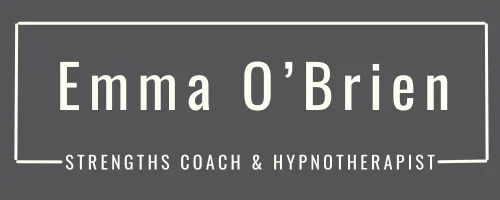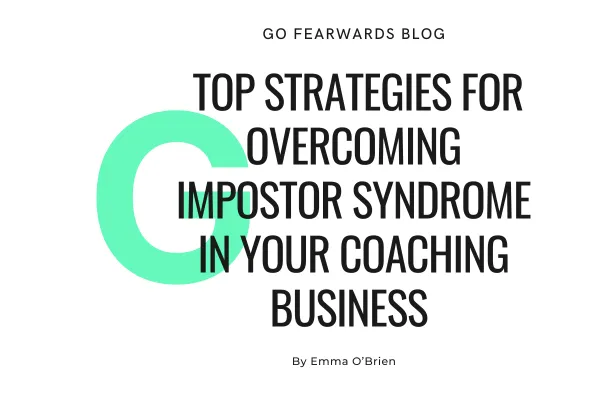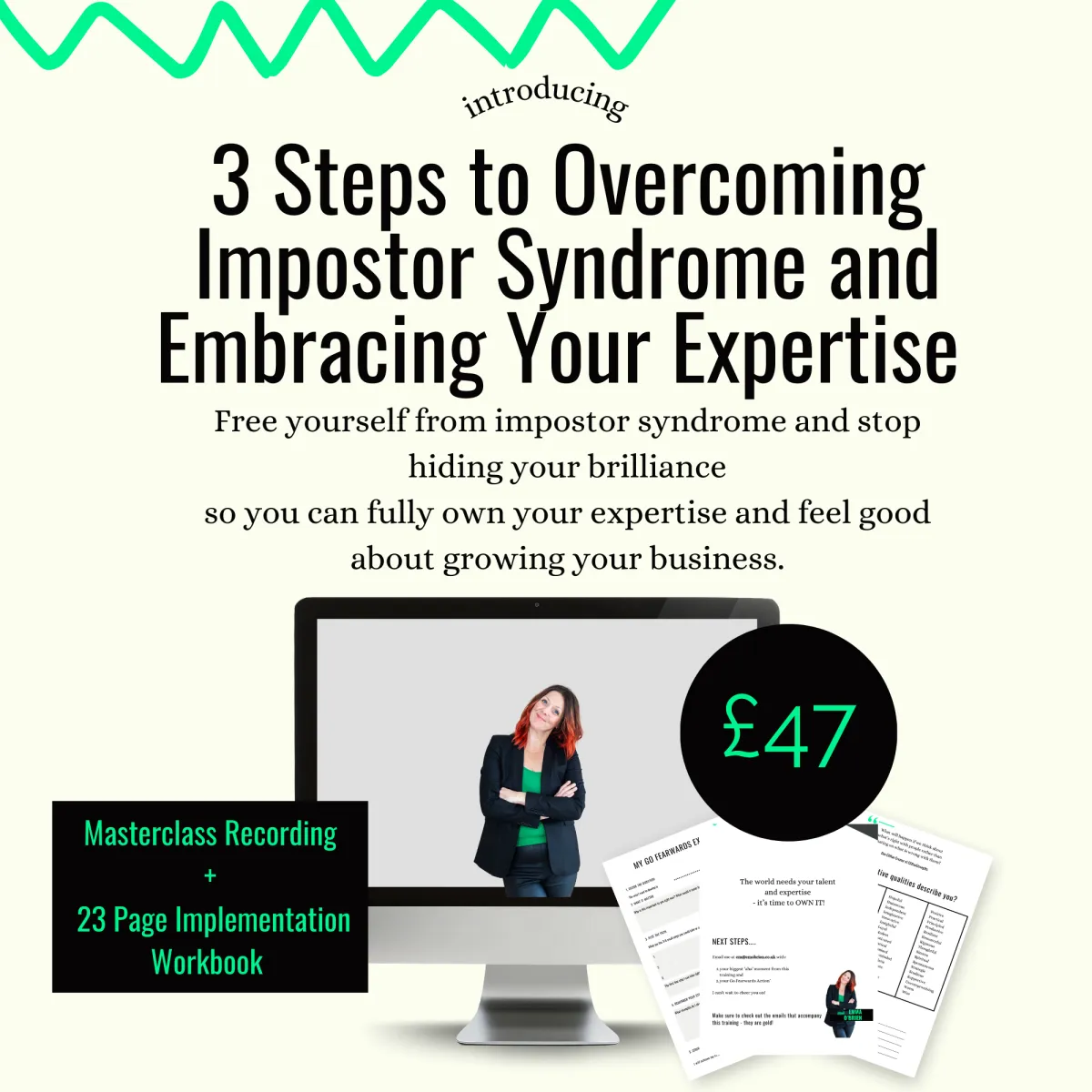

Top Strategies for Overcoming Impostor Syndrome in your Coaching Business
Top Strategies for Overcoming Impostor Syndrome in Your Coaching Business
If you've ever felt like a fraud despite your skills and achievements, you're not alone. Impostor syndrome can be a significant hurdle, especially when you're striving to own your expertise and grow your coaching business. In this blog we'll explore some actionable strategies to help you combat impostor syndrome and step confidently into your role as an expert coach.
1. Acknowledge and Understand Your Impostor Feelings:
The first step in overcoming impostor syndrome is to acknowledge its presence. Recognise the feelings of self-doubt and inadequacy for what they are – a common experience among high achievers. Understanding that impostor syndrome is not a reflection of your actual abilities but rather a psychological pattern, a way of viewing yourself that is skewed to the negative, can help you distance yourself from these feelings and view them more objectively.
2. Keep a Success Journal:
Key to overcoming impostor feelings is developing a more accurate, positive and constructive self-image and the best way to do that is to look for examples of where you are achieving good things. Document and reflect on your achievements, positive feedback from clients, and milestones in a success journal. When self-doubt creeps in, revisit these entries to remind yourself of your capabilities. Your progress and the positive impact you have made. This practice helps reinforce your sense of accomplishment and helps you to counteract negative self-perceptions.
3. Reframe Your Self-Talk:
Pay attention to your inner dialogue and challenge negative thoughts. It’s our job to curate our thoughts and with practice it’s much easier to curb the downward spiral of self-doubt and stress. Running your thoughts through Jon Acuff’s 3 filters is a great way to do this:
Is it true
Is it helpful?
Is it kind?
If your thoughts aren’t accurate, aren’t serving you and make your feel worse then let them go. Some common examples might be instead of thinking, "I got lucky," reframe it to, "I worked hard and earned this success." Replace "I'm not qualified enough" with "I’ve learnt so much and am constantly learning and growing, there will always be more to learn." By reframing critical self-talk with more accurate statements you can shift your mindset from self-doubt to self-assurance and as you take action from this mindset you’ll experience more positive outcomes and grow in confidence.
4. Focus on Your Clients' Transformations:
Shift your attention from your own insecurities and self-doubts to the transformations you facilitate for your clients. As you think about your work, focus your mind on the positive intention and impact you want to create for your clients, rather than on judgements about yourself and your ability. Reflect on the progress your clients have made under your guidance and the value you bring to their lives. When you see the real, positive changes you're helping to create, it becomes easier to appreciate your worth and expertise as a coach.
5. Seek Support and Community:
It can be easy to isolate yourself when you feel like an impostor but finding supportive groups and connecting with fellow coaches and mentors who understand the challenges you face can help you feel a greater sense of belonging and the knowledge that others are experiencing similar challenges. Being tapped into groups where you can access support and advice to overcome challenges you come up against will help you to feel better equipped and resourceful, you’ll also be in a position to help others who are less experienced than yourself and help you to see how far you’ve come. Professional networks, attending workshops, or participating in mastermind groups can all be helpful. Of course, not all communities and social situations are equal. Be mindful of how you feel in the environments you are a part of - do they build you up and help you feel connected or do leave you feeling inferior? Be selective and choose the best communities for you.
6. Embrace Continuous Learning:
Impostor syndrome often stems from the fear of not knowing enough. Embrace a growth mindset by committing to continuous learning and professional development. Be clear about what it is you feel you need to know more about or would like to progress to feel more confident and informed to stay ahead in your field and decide what activities will give you confidence in that area. Create a plan to develop in that area, such as attending seminars, reading industry books, and seeking out new certifications rather than leaving it open ended as you may find you keep moving the goalposts and never feel like you know enough/are good enough..
7. Set Realistic Goals and Celebrate Achievements:
Often coaches are working independently, with no manager or team to help gain a sense of our performance. Be mindful to set realistic, achievable goals for your coaching business and celebrate each milestone, no matter how small. Creating a system to set goals and objectives and review and celebrate progress reinforces your sense of competence and helps you build momentum. Building this into your daily, weekly and monthly routines makes evaluating your progress and celebrating your successes, even the minor ones, more familiar and this can really boost your confidence and counteract feelings of inadequacy.
8. Practice Self-Compassion:
Be kind to yourself. Recognise that everyone makes mistakes and has moments of doubt. Instead of being overly critical, treat yourself with the same compassion and understanding that you offer your clients. Practicing self-compassion can help you navigate setbacks and challenges with resilience and a positive outlook.
Conclusion:
There isn’t a ‘silver bullet’ for overcoming impostor syndrome. It is an ongoing journey, but with these strategies, you can diminish its impact and step more fully into Owning your expertise.
Acknowledge your feelings, document your successes, reframe your self-talk, and focus with positive intent on your clients. Seek support from your community, embrace continuous learning, set achievable goals, and be kind and encouraging towards yourself.
Read Next: 8 Things Expert Coaches Do That Makes Impostor Syndrome Worse

Get Go Fearwards Friday delivered straight to your inbox
I agree to terms & conditions provided by the company. By providing my email address, I agree to receive emails from Emma O'Brien.
© Copyright 2022 Business Name.